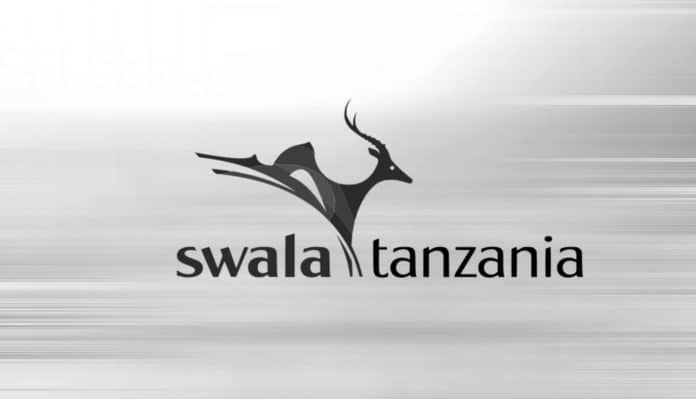Swala Tanzania Share Price: What Investors Need to Know
Are you an investor looking to tap into the potential of the Tanzanian market? If so, then you need to pay attention to Swala Tanzania, a company that has been making waves in the energy sector. With its shares attracting attention from both local and international investors, it’s no wonder that the Swala Tanzania share price has become a hot topic. In this article, we will delve into what investors need to know about this exciting opportunity. From the company’s background and growth prospects to its recent performance and future outlook, we will provide you with all the essential information to make informed investment decisions. Whether you’re a seasoned investor or just starting out, stay tuned to discover why Swala Tanzania could be a game-changer in the Tanzanian market.
Understanding Share Prices and their Significance
Before diving into the specifics of the Swala Tanzania share price, it’s important to understand what share prices represent and why they matter to investors. Share prices reflect the market’s perception of a company’s value, and they fluctuate based on various factors such as supply and demand, earnings, and market sentiment. As an investor, monitoring share prices allows you to assess the performance and potential of a company, and it helps you make informed decisions about buying or selling shares.
When it comes to Swala Tanzania, the share price is a reflection of the market’s expectations for the company’s future performance. A rising share price indicates positive sentiment and confidence in the company’s ability to generate returns, while a declining share price may indicate concerns and uncertainties. By analyzing Swala Tanzania’s share price movements, investors can gain insights into the company’s financial health, growth prospects, and market position.
Factors Influencing Swala Tanzania’s Share Price
A multitude of factors can influence the Swala Tanzania share price. Understanding these factors is crucial for investors looking to gauge the company’s performance and make informed investment decisions. One of the primary drivers of share prices is the company’s financial performance. Swala Tanzania’s revenue growth, profitability, and cash flow generation all play a significant role in determining the market’s valuation of the company.
Additionally, macroeconomic factors and industry trends can impact the Swala Tanzania share price. For instance, changes in oil and gas prices, government regulations, and geopolitical events can all affect the company’s prospects. Investors should also monitor market sentiment and investor sentiment towards the energy sector as a whole, as this can influence the demand for Swala Tanzania shares.
Furthermore, company-specific factors such as management quality, operational efficiency, and strategic initiatives can impact Swala Tanzania’s share price. Investors should assess the company’s competitive advantage, growth strategy, and ability to adapt to changing market conditions to evaluate its long-term potential.
Analyzing Swala Tanzania’s Financial Performance
To gain deeper insights into Swala Tanzania’s share price movements, investors should analyze the company’s financial performance. A thorough examination of the company’s financial statements can provide valuable information about its revenue growth, profitability, and cash flow generation.
Firstly, investors should assess Swala Tanzania’s revenue growth. A consistent and robust revenue growth indicates that the company is expanding its operations and capturing market share. It also signals strong demand for its products or services. Investors should look for sustainable revenue growth and evaluate the company’s ability to maintain or increase its market share in the face of competition.
Profitability is another crucial aspect to consider. Investors should analyze Swala Tanzania’s net profit margin, which measures the company’s ability to generate profits from its revenue. A higher net profit margin suggests that the company is efficiently managing its costs and generating higher returns for its shareholders.
Cash flow analysis is equally important. Positive cash flow indicates that the company has sufficient liquidity to meet its obligations and invest in growth opportunities. Investors should examine Swala Tanzania’s operating cash flow, investing cash flow, and financing cash flow to understand the company’s cash flow dynamics.
By analyzing Swala Tanzania’s financial performance, investors can gain insights into the company’s ability to generate returns and its overall financial health. This analysis can help investors make informed decisions about the company’s share price movements.
Swala Tanzania’s Market Position and Industry Outlook
Understanding Swala Tanzania’s market position and the industry outlook is essential for evaluating the company’s growth prospects and share price potential. Swala Tanzania operates in the energy sector, specifically in oil and gas exploration and production in Tanzania. The company holds exploration licenses in several highly prospective areas within the country.
Tanzania’s energy sector has experienced significant growth in recent years, driven by increasing demand for energy and the discovery of substantial natural gas reserves. The government has been actively promoting investment in the sector, creating opportunities for companies like Swala Tanzania to capitalize on the country’s energy potential.
Swala Tanzania’s market position is strengthened by its partnerships with international oil and gas companies, which provide technical expertise and financial support for exploration and production activities. These partnerships enhance the company’s ability to successfully identify and develop oil and gas reserves, increasing its chances of long-term success.
Investors should also consider the industry outlook when evaluating Swala Tanzania’s share price potential. While the energy sector offers substantial opportunities, it is not without risks. Fluctuating oil and gas prices, regulatory changes, and geopolitical factors can impact the industry’s profitability and growth prospects. Investors should assess the industry’s long-term potential and the company’s ability to navigate these challenges.

Key Indicators to Consider When Evaluating Swala Tanzania’s Share Price
When evaluating the Swala Tanzania share price, investors should consider key indicators to assess the company’s performance and potential. These indicators provide insights into the company’s financial health, growth prospects, and market position.
One important indicator is the company’s production and reserves. Investors should evaluate Swala Tanzania’s ability to increase production levels and replenish reserves over time. Increasing production and reserves indicate the company’s ability to generate sustainable revenue and profits.
Another key indicator is the company’s exploration and development activities. Investors should monitor Swala Tanzania’s progress in exploring new areas and developing existing assets. The successful discovery of new reserves and the efficient development of existing ones can contribute to the company’s long-term growth and share price appreciation.
Financial indicators such as earnings per share (EPS), return on equity (ROE), and debt levels are also crucial in evaluating Swala Tanzania’s share price potential. Positive EPS growth and ROE indicate that the company is generating returns for its shareholders, while manageable debt levels ensure financial stability and flexibility.
Investors should also consider the company’s valuation metrics, such as price-to-earnings (P/E) ratio and price-to-book (P/B) ratio. These metrics help investors assess whether the company’s share price is overvalued or undervalued relative to its financial performance and industry peers.
Risks and Challenges Associated with Investing in Swala Tanzania
Investing in Swala Tanzania is not without risks and challenges. As with any investment, it’s important for investors to understand and evaluate these risks before making investment decisions. Some of the key risks and challenges associated with investing in Swala Tanzania include:
- Geopolitical risks: Tanzania’s political stability and regulatory environment can impact the company’s operations and profitability. Changes in government policies, licensing requirements, and tax regulations can create uncertainties for investors.
- Commodity price volatility: Swala Tanzania’s profitability is sensitive to changes in oil and gas prices. Fluctuating commodity prices can impact the company’s revenue and profitability, affecting its share price.
- Exploration and production risks: The success of Swala Tanzania’s exploration and production activities is subject to geological and technical uncertainties. The company’s ability to discover and develop reserves depends on factors such as accurate seismic data, drilling techniques, and reservoir characteristics.
- Competitive landscape: Swala Tanzania operates in a competitive industry, and it faces competition from both local and international players. The company’s ability to compete effectively and maintain or increase its market share is crucial for its long-term success.
- Environmental and social responsibilities: Swala Tanzania operates in an industry with significant environmental and social impacts. The company’s ability to manage these responsibilities and maintain a positive reputation is essential for its sustainable growth and investor confidence.
Investors should carefully evaluate these risks and challenges and consider their risk tolerance before investing in Swala Tanzania.
Expert Opinions and Forecasts on Swala Tanzania’s Share Price
To gain a comprehensive understanding of the Swala Tanzania share price potential, investors can consider expert opinions and forecasts. Analysts and research firms often publish reports and provide insights on the company’s prospects based on their analysis and industry expertise.
These expert opinions can provide valuable insights into Swala Tanzania’s growth prospects, industry trends, and potential risks. However, it’s important for investors to critically evaluate these opinions and consider multiple sources to form their own investment thesis.
Investors should also be cautious of short-term forecasts and focus on the long-term potential of Swala Tanzania. Share prices can be influenced by short-term market sentiment and speculation, but long-term value is determined by the company’s ability to generate sustainable growth and profitability.
How to Buy and Sell Swala Tanzania Shares
If you are convinced of Swala Tanzania’s potential and want to invest in the company, you need to know how to buy and sell its shares. The first step is to open a brokerage account with a reputable stockbroker that offers access to the Tanzanian market. Once your account is set up, you can place orders to buy or sell Swala Tanzania shares through your broker’s trading platform.
Before placing an order, it’s important to conduct thorough research and analysis to ensure that your investment aligns with your financial goals and risk tolerance. Consider consulting with a financial advisor or conducting your own due diligence to make informed investment decisions.
When selling shares, monitor the Swala Tanzania share price movements and consider factors such as your investment objectives, market conditions, and potential capital gains or losses. It’s important to have a clear exit strategy and avoid making impulsive decisions based on short-term market fluctuations.
Conclusion and Final Thoughts on Investing in Swala Tanzania
In conclusion, the Swala Tanzania share price presents an exciting investment opportunity for investors looking to tap into the Tanzanian energy sector. The company’s share price reflects market expectations for its future performance, and understanding the factors influencing the share price is crucial for making informed investment decisions.
By analyzing Swala Tanzania’s financial performance, market position, and industry outlook, investors can gain insights into the company’s growth prospects and share price potential. However, investing in Swala Tanzania is not without risks, and investors should carefully evaluate these risks before making investment decisions.
Expert opinions and forecasts can provide additional insights into Swala Tanzania’s prospects, but investors should critically evaluate these opinions and consider their own investment thesis.
If you decide to invest in Swala Tanzania, make sure to open a brokerage account and conduct thorough research before buying or selling shares. Monitor the company’s share price movements and consider your investment objectives and risk tolerance when making investment decisions.
Investing in Swala Tanzania can be a rewarding opportunity for investors who are willing to understand the company’s potential, evaluate risks, and make informed investment decisions. By staying informed and keeping an eye on the company’s performance, investors can navigate the Tanzanian market and potentially benefit from Swala Tanzania’s growth.
For more articles related to Financial Services in Tanzania, click here!

































